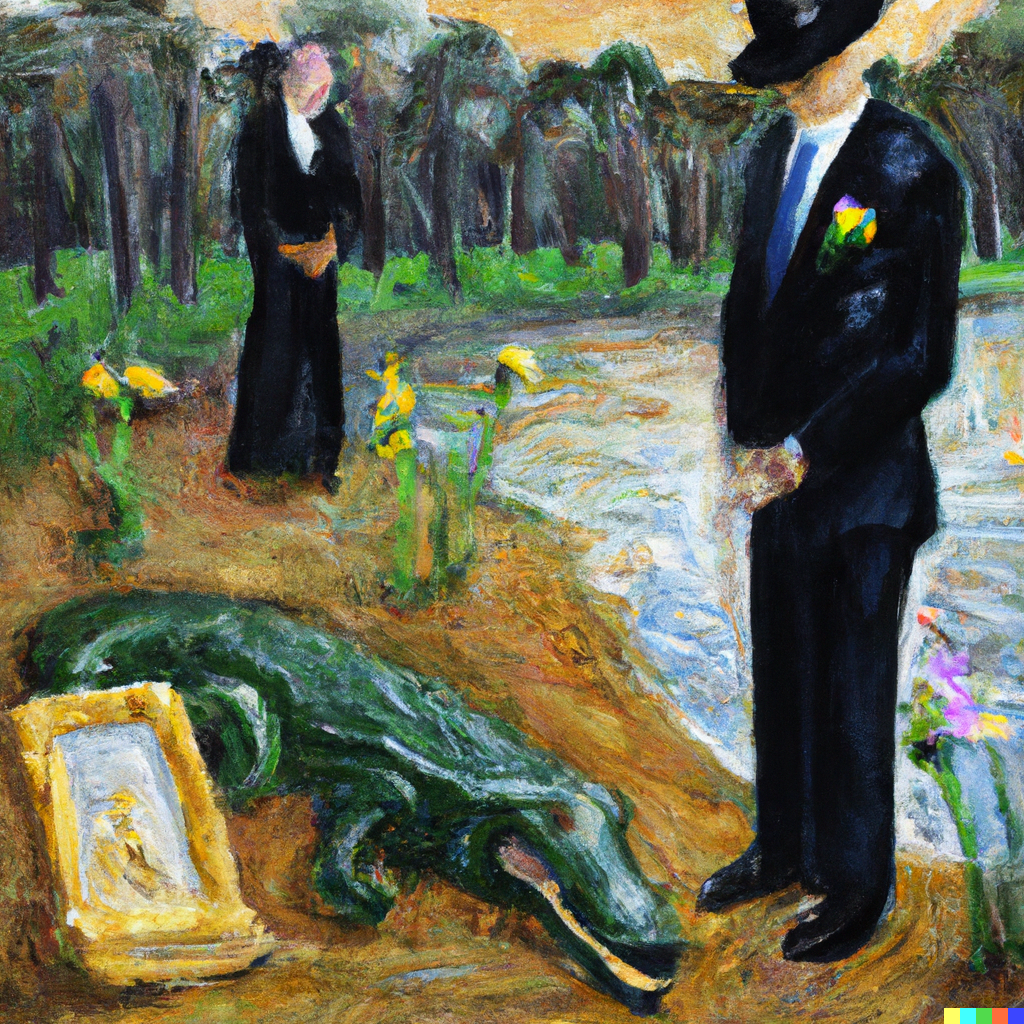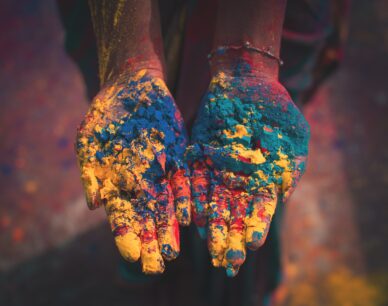Diversity or Disillusionment? India’s tryst with monoculturalism
Melanie Banerjee, November 9, 2023
What is the Indian culture and Indianness? A question that, until a decade ago, would sprout multiple responses on how Indianness is a blend of many cultures, or the Indian culture is diverse. Even the country’s Ministry of Culture suggests, “It represents a set of shared attitudes, values, goals and practices, manifesting themselves in almost all economic, social and other activities.” Hence, a country as diverse as India, symbolises a culture of plurality that cannot be summed up in one word.
Yet almost a decade into the present government in New Delhi, the BJP (Bharatiya Janta Party) governs with a quest for homogenised syncretism of its country’s diversity, a means of naturalisation for nationalism. Most recently, it was the G20 summit hosted by New Delhi in September 2023. The event projected a message of nationalistic fervour and oneness. Oneness in countries’ future aspirations, oneness in language (letting go of the anglicised name of the country to its Vedic equivalent, ‘Bharat’ in official communique) and oneness in focus to rebuild the country’s Hindu foundations.
Leading from the front is the prime minister, Mr. Narendra Modi, whose rise to power in office since 2014, has been attributed to a voter base that is roughly 50 per cent of the Hindu faith. Thus, over the last nine and a half years, the Bharatiya Janata Party stands as the richest political organisation in the nation and the largest political party in the world. Even though India is home to over two thousand ethnic communities, diverse languages and is the land of four major Indian religions, including Hinduism; the country under the rule of the BJP, is displaying a paradox in its prideful diversity.
Two Versions of “We, the People”:
Renowned political author Christophe Jaffrelot, in his book Modi’s India: Hindu Nationalism and the Rise of Ethnic Democracy, argues that “Modi’s India is a sobering account of how a once-vibrant democracy can go wrong when a government-backed by popular consent suppresses dissent while growing increasingly intolerant of ethnic and religious minorities”. Political scholar Ernst Gellner backs the argument in his seminal work, Nations and Nationalism, that a nationalist culture is a political principle, one where homogeneous cultural units lay the foundations of political life and nation-building. It is a sentiment that must be a congruent cultural sentiment across all ethnic and social groups (Gellner, 1983). Furthermore, according to the Webster dictionary, a monocultural society is governed by a single group, that encourages, promotes, or tolerates the manifestation of culture as determined by them.
Political pundits have reasons to believe that India is not upholding its multicultural ethos. As some of the most recent policy endeavours made by the nation’s parliament seem to support Gellner’s criticism that; nationalism and cultural awakenings are deliberate attempts to homogenise a culture by the political class.
For instance, the BJP-led government’s tax system, the Goods and Services Tax System (GST) is also touted as “One Nation-One Tax,” or the Targeted Public Distribution System (TPDS) is called the “One Nation-One Ration Card.” Additionally, promoting Hindi as “One Nation, One Language” and considering Lord Rama, as the founding deity of Hinduism, and the only religious emblem capable of bringing the nation together. However, promoting policies of unity have run counter to the reality on ground, where the government is increasingly dogged by controversies brought on by the alarming rise in social inequality, gender-based violence, skilled labour and unemployment crises, caste conflicts institutional corruption and restrictions on press and media freedom.
Although culture wars are not new to India, the country has experienced an extraordinary spike in ethnic hate crimes in the twenty-first century, seventy-six years after gaining independence. The statistics given by India’s National Crimes Record Bureau (NCRB) on communal violence (Indian Penal Code 153A) contrasts with the country’s national narrative of unity in diversity. The figures between 2014 (total: 323) and 2021 (total: 1047) indicate a rise in hate crimes and hostility against people of all races, religions, and places of birth by over a hundred percent.
Additionally, the disclosure of the number of chargesheets lodged for acts of communal violence abruptly ended after 2015 (chargesheets between 2014 (total 103) and 2015 (total 259)). The variance in the number of criminal offences per chargesheet submitted under the Indian Penal Code, however, has remained largely stable (between 1-2 per cent). Moreover, the Prevention of Communal Violence (Access to Justice and Reparations) Bill, 2004, remains pending in the country’s parliament since 2004, and has not yet been passed; the reasons for which are still unknown.
Monocultural social cohesions are also becoming more and more important in modern India, both politically and as a way to maintain social power. Gellner uses the example of the “fish-bowl” phenomenon to demonstrate it, claiming that a nationalist state understands that contemporary societies are devoted to a culture rather than to a leader, a region or a faith. Therefore, in order to foster the idea of “political universality,” modern industrial governments require a variety of shared cultural fish bowls with pervasive high cultures (i.e., standardized lifestyles, literacy and communication systems).
These cultural communities maintain themselves by self-governance supported by state-provided legal protections, assuring full cultural citizenship to individuals who share the same socio-political ideologies. Thus, giving it legitimacy by establishing that ethnic boundaries should not cut across political ones. This results in a mono-cultural movement. Besides, nationalist administrations and their modes of governance view a country’s political system as a unified, integrated totality, because doing so promotes the development of social power and gives citizenship rights to everyone who lives under the same political roof.
Hence, it is difficult to dispute that India struggled with its citizenship amendment act in 2019, under which for the first time under Indian law, religion will be utilised to grant citizenship. A person can be a citizen but not a national unless they enculture and align themselves with the current political faith, which is obviously the result of selecting nationalising and monocultural practises opted in present-day India.
Culture is malleable but nationalism endures:
The idea of culture comes with pre-requisites like ethnicities, linguistics and political communities to express a sense of their collective being (Cubitt, 1998: 2) but nationalism as opposed to regional identity, is seen as a plausible remedy against problems associated with ethnic fractionalization (Miguel, 2004). Even though culture critiques have multiple conflicting opinions ,the latter in case of India has proven quite in sync. The country under the BJP rule has coerced ethno-nationalist systems with its diversity and socio-economic practises to manufacture a kindred cultural identity . A framework which is nation-first but not necessarily majority as second.
With “One Nation-One Election” as one of its slogans, the BJP government is gearing up for national elections for the parliament in 2024, which it has dubbed a new era in the country’s elections. During its ten years in power, the BJP has indeed altered the course of India’s cultural ethos; one that strives for singularity yet struggles to align to its own diverse identities. Although political scholars Steven Poe and Neal Tate disagree with Gellner’s views and contend in their empirical model on personal and physical integrity and rights in a democracy that, despite the difficulties advanced democracies face with constitutional continuity, social change, and institutional reforms, promoting monoculturalism is not the best option for efficient governments because doing so entails financial burdens for the state.
BJP-led India still exhibits a startling contrast in how they steer governance, voluntarily bearing the burden of economic and policy costs for the sake of monocultural ideology . For instance, inefficiency in managing structural weaknesses in public banking institutions due to rising credit crisis, rolling out of knee-jerk policy like the demonetization of its currency denominations, are much in contrast to a rising religious economy that remains largely tax-free and has boomed to a $40 billion economy (or roughly 2.32 percent of the nation’s GDP, according to India’s National Sample Survey Office).
India is considered to be an agrarian country, yet its agriculture sector has been stuck at an annual growth rate of 4.6 percent (Economic Survey of India 2023- 8.36 pp. 258) for the past six years. Meanwhile, the latest Agri-sector budget allocation for 2023-24 is decreased by almost seven percent; stirring the fears of rural distress and food security. Furthermore, institutional corruption and payment leakage(CAG Report16-2023, p. 39) persist despite post-pandemic social welfare expenditures, which constitute one-fourth of India’s GDP in direct fund transfers.
While demo-sceptics (Conversi 2006) and demo-optimists remain divided on nations and their cultures. The debates over whether or not nationalist and monocultural regulatory frameworks provide effective governance have so far run afoul in evidence from India’s open access statistics showing that the country’s pride in its diversity does nothing to address its socio-economic inequities, which also threaten its democratic ideals.
Of the people, by the Government:
India’s multicultural sentiments are at a crucial crossroads as it envisages its time of elixir, or Amrit Kaal, in Hindi; denoted by the Indian government. At this time, the primacy of political faith and the shift towards monoculturalism are pitted against quantitative weaknesses in the systemic and structural assemblies of the nation.
Although noted demo-sceptic David Miller claims that ethnicity determines national culture and that social consensus and a shared cultural identity are crucial for a government to distribute welfare (Miller 1989a, 68; 1989b, 236-37). On the other hand, demo-optimists like Jürgen Habermas assert that for a democracy to be legitimate, political recognition of human rights and the philosophical ideal of personal autonomy are essential, that responsibility and accountability are the pinnacle of a mature democracy; as they are capable of promoting and preserving such values as national cultures. (Mündigkeit Philosophie 1987 [1965/1968, p. 311])
The reality remains that cultural homogeneity as a policy strategy has skewed the scales in favour of majoritarianism in India at the expense of its diversity and socioeconomic unity. Despite the fact that the Indian government and its citizens have backed the philosophy of “One Size Fits All“, a practice that promotes monocultural standards as the de facto standard ultimately undermines its multicultural populace.
Today, the government-imposed narrative of the altered cultural reality is beginning to carry more weight than just a discursive dream. As India approaches its annual national elections next year, it is a matter of time when the largest democracy in the world, will eventually transition from the ideals of “Unity in Diversity” to “Nation for the Many by One.”
You may also like

Eyes of the Beholden
Unspoken desires linger in the shadows of a teacher's life, revealed through art

LOST
Bessie's odyssey through stormy nights, lost love, and secret graveyards unfolds with haunting beauty in "Lost" by Sandra Dennis.

Water Rising
Amidst a flood, a woman grapples with the past, and confronts the consequences in this haunting narrative of resilience.

Book Review: White Nights by Urszula Honek
The debut short story from Polish writer Urszula Honek, White Nights, is akin to reading an account of a haunted place – one that is beautiful and devastating in equal

Beyond the Surface: The Multifaceted Lives of ‘American Fiction’
In essence, "American Fiction" and the experiences it draws from remind us that we are indeed more than the sum of our parts.

Beyond the Surface: The Multifaceted Lives of ‘American Fiction’
The narrative of “American Fiction” unfolds with a dual focus: it not only scrutinizes the unique pressures faced by Black creatives but also delves into the intricate and sometimes tense…

Uncle Bobby’s Funeral
Reluctant family faces the eccentricities of Uncle Bobby's funeral in swampy Chipley.








